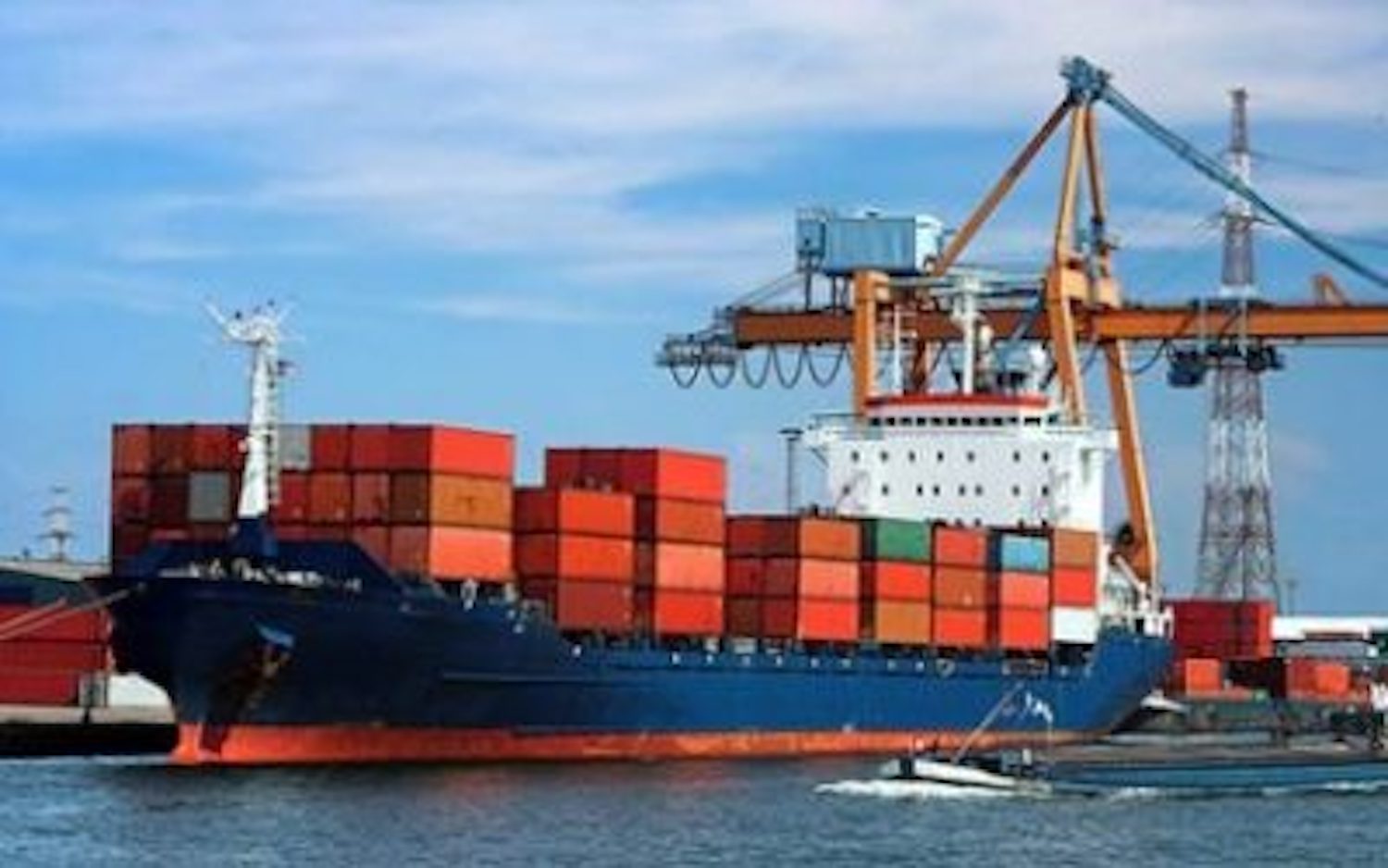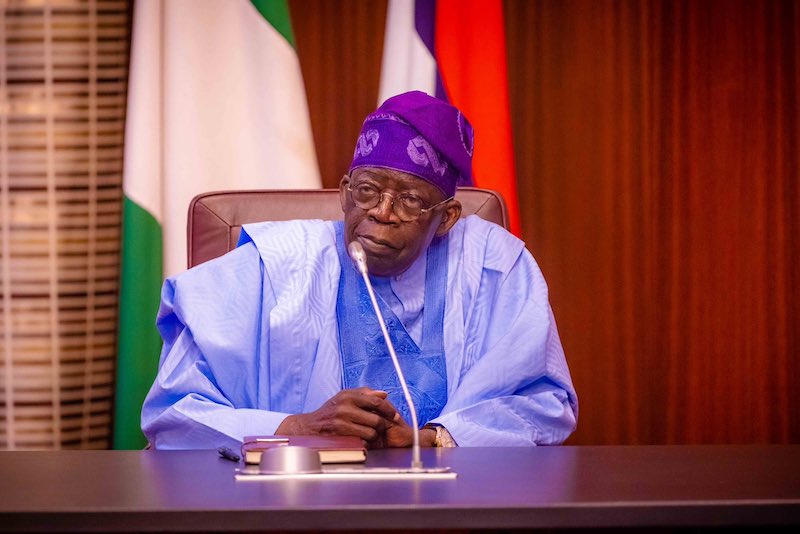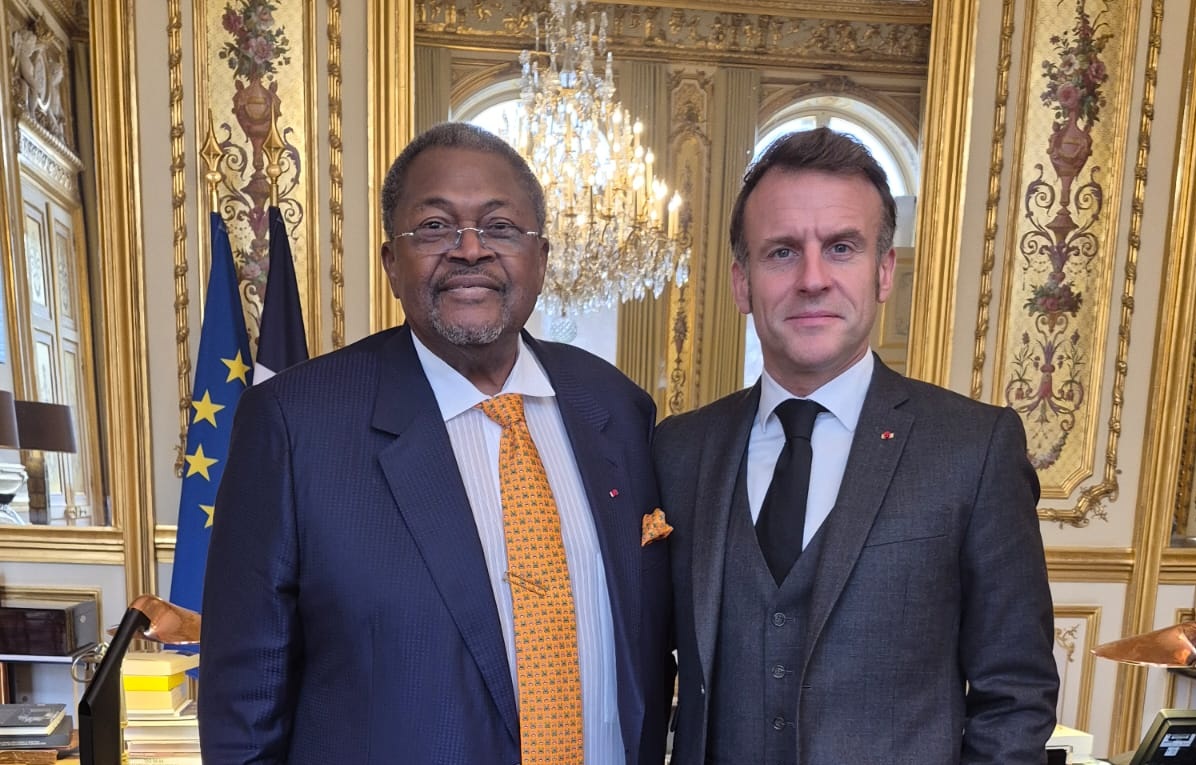The SAA battle took a serious turn on November 7, 2019, when a motion was raised following an alarming letter by the Nigeria Ports Authority (NPA) on alleged illegal security activities perpetrated by Ocean and Marine Solutions Limited (OMSL) at the Secured Anchorage Area (SAA), Lagos port.
The Senate then detailed a 44-man (including three members from the secretariats) joint committee, comprising Navy, Marine Transport and Finance to investigate the matter.
Their terms of reference were to determine the legality of the operations, its revenue, security implications and the legality of the entire chain of the operation.
It also mandated the joint committee to investigate the lingering quarrel among the agencies with a view to resolving the security impasse it will bring to the nation as well as the legality of OMSL and its operations.
The Senate, considering the importance of the matter allowed four weeks for the conclusion of investigation and reports, as well as approved three independent Chairmen, to forestall manipulations of any kind. The Chairmen were: Senators George Sekibo, Mohammed Danjuma Goje and Senator Solomon Adeola Olamilekan.
Giving a background of how the SAA began, OMSL Chairman, Capt Hosa Okunbo during the hearing, stated thus:
“OMSL started in 2007 at the height of militancy where this country was producing less than 300,000 barrels a day. The late Admiral Augustus Aikhomu, who was the first Chairman of OMSL, and who had been a one-time Chief of Naval Staff, was the one who came up with this idea.
“We stood in the gap between the Navy to carry out their statutory responsibilities, and the oil companies, who were ready to pay for our services. If we were to pay the Navy, then prices would have been crazy. We took that responsibility, sat with the oil companies, and everything was benchmarked in line with industry practices.
“That the operation of the SAA entailed availability of platforms and provision of logistics for round the clock security of Lagos Anchorage.
“That the services of Private Maritime Logistics Supports Companies (PMLSC) had to be leveraged in order to effectively patrol the area and the Navy was faced with dearth of platforms.
“That approval was gotten from the Ministry of Defence with support of the Office of the National Security Adviser (ONSA) for the Navy to collaborate with PMLSC in providing dedicated patrol vessels.
“That the approval and acceptance of NPA and NIMASA enabled the Nigerian Navy to sign an MOU with OMSL for the operation of the SAA
“That the OMSL is not operating illegally as it has an extinct MOU with the Nigerian Navy; That OMSL was among twenty nine other PMLSCs that the Nigerian Navy collaborated with and eventually operated the SAA.
“That the secured Anchorage Area (SAA) has been operated by OMSL since 2013,”
And it rounded off its presentation with a warning thus “That the stoppage of the SAA operated by OMSL without provision of an immediate alternative could lead to security lapse and return the Lagos Anchorage approach to security dangers as experienced in 2012 and 2013.
It will be recalled that there was rising insecurity in the maritime domain, especially in October 2012 when the Navy seized a foreign flagged ship carrying arms and ammunition. This and more, OMSL noted while making its presentation before the joint committee
The organization noted that the rising insecurity prompted a series of brainstorming sessions among relevant government agencies such as NPA, NIMASA, NNPC and Nigerian Navy on issues bothering on ship to ship operations, security and environmental protection. The idea was to provide comfort for the users of the Nigerian coastal waters.
That was not all, OMSL hinted that the insecurity, which was reaching its peak, had compelled foreign vessels seeking berthing slots in Lagos to stay outside Nigerian territorial waters up to a distance of 200 nautical miles where they believed pirates can’t reach them or prefer to come into the country with foreign mercenaries for their safety.
Furthermore, Nigeria was losing business and huge revenue to neighbouring countries such as Benin, Togo and Ghana as foreign vessels found solace in their ports.
It is also on record that the intervention of OMSL not only reduced the heightened insecurity, but wiped it out, creating a safe haven for foreign and local vessels to berth and operate. The intervention of OMSL was however, not automatic; it followed laid down due process.
In the first place, its pedigree as a result of successes recorded while being engaged by reputable firms caused the Nigerian Navy to introduce the company to NPA and NIMASA.
OMSL was subsequently invited to series of strategic meetings with stakeholders on how to provide security on the harbour approaches, and a deal was officially struck.
The company went out of its way to provide the needed services by undertaking significant investment in the acquisition of assets and logistics backup required by the Navy to offer all round patrol services.
OMSL stated further in its submission presented by its MD, Rear Admiral Aminu Oyone Ikioda (rtd):
“That the company has provided various forms of security services to International oil companies (IOCs) operating in the country particularly at the height of militant attacks in 2007
“That the intervention of the company led to the continuous production of oil and aided in combating the effect of drastic drop in national oil production and revenue accruing to both government and IOCs
“That on the basis of the publication of the maritime notices, OMSL was encouraged to develop and submit a business plan to support the SAA operations which would guarantee return on investment at no cost to government
“That upon receiving the approval of the Nigerian Navy, OMSL proceeded to undertake significant acquisition of assets and logistics Backups required by the Nigerian Navy to offer dedicated 24/7/365 security patrol services demanded by some of the vessels that desired extra protection while waiting offshore Lagos for berth allocation of conducting STS transfer operations.
“That the services of the SAA facility was embraced and accepted by foreign vessels owners putting into consideration the safety, security and environmental protection that will be rendered to them, and were ready to pay for such…”
“That there was no budgetary allocation by any government agency to provide the kind of unique service required to run the Secured Anchorage Area (SAA)
The Shipowners Association of Nigeria (SOAN) in its presentation strongly recommended that the current SAA arrangement should not be tampered with. According to it:
“The SAA facility had helped in increasing the presence of the Nigerian Navy at the sea and serves as deterrence to pirates and other criminals in the sea
“That the SAA is operated by the Nigerian Navy that is saddled with the responsibility of protecting the Nigerian waterways and as such will not have any negative security implication
“That SAA operation has drastically helped to reduce freight cost and other associated charges while also reducing waiting time of vessels.
The Ship Owners then asserted that the stoppage of the SAA facility will render Nigerian ports unattractive to shippers, as ships will be prone to attacks, and urged that the status quo should remain and supported to compliment the general maritime security provided by the government.
National Association of Government Approved Freight Forwarders (NAGAFF) lauded the establishment of the SAA as its operation is at no cost to Government but users of the platform.
Noting significantly in a presentation by its President, Chief Increase Uche “That the amount paid by ship/vessel owners for the services rendered at the SAA is so insignificant and cannot add any reasonable cost on cargos compared to cost of ransom, damage, destruction or loss of cargo through sea robbery, piracy and kidnapping.
In its presentation, Nigeria Ports Authority (NPA), represented by its Managing Director, Ms Hadiza Bala-Usman, noted that it discovered that in its drive to streamline the operations of the authority and to reduce the cost of doing business in the Nigeria sea ports, there was a Secured Anchorage Area which is different from the designated Safe Anchorage Area known to it.
She asserted “That the OMSL charged vessel owners $2,500 for the first day and $1500 for the subsequent days for its services without remitting same to government. She went on to reveal that NPA “is proposing to put in place a structure that will secure the designated anchorage areas within Lagos”
The Transport Ministry noted in its presentation by the Minister of State for Transportation, Sen. Gbemisola Ruqayyat Saraki, that it was written to on October 16, 2019 to intervene in respect of a Marine Notice published by NPA about the stoppage of the SAA without putting into consideration the huge investment made in the SAA and successes recorded so far.
It told the committee that based on that letter, and the one written by the NPA to the Navy to stop the SAA, it called for a meeting of stakeholders on December 9, 2019 “to deliberate holistically and take appropriate action, the outcome and resolution has not been made public”.
It however noted: “That the ministry agrees with the fact that the Marine notice issued by NPA for the stoppage of SAA operation by OMSL was hasty as there was the need to interact with all stakeholders to review the situation before issuing such proclamation.”
The Marine section of the Nigerian Police was also quick to point out at the hearing that its agency sent notices to Mariners informing them of the availability of the SAA.
Speaking through the Force Marine Officer, CSP Benjamin Ogungbure, the section noted that “OMSL through the SAA had provided security platform for ships berthing at offshore to the Lagos ports to utilize but the management of NPA are not fully in support of the operation and that the SAA is situated 10 nautical miles away from the Fairway Bouy which is outside the jurisdiction of the NPA.”
In their report, which was endorsed by the general membership of the upper legislative chamber, the joint committee acknowledged that the operations of OMSL at SAA was legal and set up without bias to any establishment as it collaborated with the only entity saddled with the responsibility of providing security, the Navy.
It noted that it was no one’s business the modalities the Navy chose to go about its security apparatuses.
Again, given the fact that NPA also provide anchorage services, where it means that using SAA is optional, and that the SAA anchorage is located far from the jurisdiction of the NPA, it is therefore, surprising the aggressive attempt to dismantle a facility that has not broken any law or operated outside constituted authority.
The committee recommended that OMSL should be commended for its ‘genuine national interest in investing over four hundred million dollars ($400,000,000) into the security of the SAA in particular and the Nigerian waterways in general’.
This is as the organisation provided needed platforms and logistics for the Navy to effectively perform patrol operations round the clock and protect vessels waiting to berth at Lagos ports.
It also stated that OMSL committed no fraud in its operations, and as a result should be allowed to continue its operations at the SAA pending when a better and cost effective alternative is put in place. It finally noted that OMSL is performing its duties at no cost to the government.
Despite the glaring endorsement of OMSL by the Joint Senate Committee, the Minister of Transportation, Rt. Hon. Rotimi Chibuike Amaechi, is insisting that the operation was illegal. And is now propping up another company to take up the same responsibility.
In February, 2020, Amaechi had said the Secured Anchorage operation was suspended because “it was criminal and illegal to create anchorage for purpose of providing security, which ordinarily should be the responsibility of the government, stating it was his personal decision, and not Bala-Usman’s NPA, which brought the knowledge of the existence of the facility to him.
The Boss investigation revealed that the company being proposed to take over the responsibilities that was handled by OMSL is run by Israelis.
Further investigation disclosed that the company, HLSI, incorporated under the Laws of Seychelles with a local subsidiary functioning from Abuja, Nigeria, may not have the requisite capacity to deliver.
The Boss checks revealed that though the SAA facility issue was only raised in 2019 before the senate, a contract had already been signed in July 2017, and this fact was not revealed to the 44-member Joint Committee.
Documents obtained by The Boss revealed that on July 27, 2017, a Deep Blue Contract was signed by the Federal Ministry of Transportation, NIMASA and HLSI titled “System of improving the control of Nigeria’s Economic Zone”.
HSLI International is a company incorporated under the laws of Seychelles with a registered office in Cyprus! Its local subsidiary, HSLI Systems and technologies is located in Wuse II, Abuja and represented by Mr. Pinhas Moria and Mr Oren Chaluzi, said to both be Israelis.
The Ministry of Transportation stated that its reason for embarking on this project was “to increase its monitoring and compliance enforcement within Nigeria’s exclusive Economic Zone (EPZ) due to illegal activities that have increased and intensified in the Gulf of Guinea in recent time”.
The document further reveals “The Contract Sum for this Project shall be the sum of $195,300m equivalent to N59, 839, 920 billion naira, while 10% the sum $19, 530,000 will be for Management Training”. HSLI is to establish an integrated National Coastal Surveillance and Waterways Protection solutions…”
It is curious that a little known foreign company, HSLI is being offered a contract to provide a responsibility that was ran efficiently at no cost to the government by a Nigerian outfit especially, as OMSL has offered in its presentation, that it was willing to discuss modalities for amicable settlement.
That is not all, while OMSL has already deployed 50 Vessels, and invested heavily in building capacity, HSLI is proposing to purchase two vessels, is this not a recipe for disaster? Certainly, the last has not been heard of this battle for the soul of the SAA.



























 Headline5 days ago
Headline5 days ago
 Headline5 days ago
Headline5 days ago
 Headline3 days ago
Headline3 days ago
 Voice of Emancipation5 days ago
Voice of Emancipation5 days ago
 News5 days ago
News5 days ago
 National4 days ago
National4 days ago
 Events5 days ago
Events5 days ago
 Headline4 days ago
Headline4 days ago
